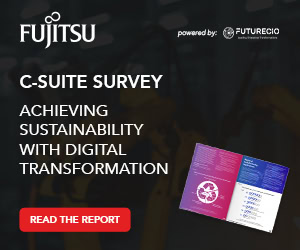Technology has revolutionised the way businesses in many industries operate. While not a recent phenomenon, the trend has accelerated rapidly in recent years as businesses sought to overcome the impact of the pandemic and cater to customers who have become reliant on digital channels to discover and engage businesses.
The impact of digital transformation in the hospitality industry - a sector many consider more traditional than most - is often overlooked compared to other industries, but its impact has the potential to be significant.
Take AI (artificial intelligence) and automation, for example. ChatGPT has evolved from technology to cult status in 2023, with almost two billion monthly site visits. Consumers use the platform to plan meals, complete homework and even create dating profiles.
Its impact on helping consumers automate time-consuming tasks is established, but the tool - and a broader focus on automation – can help Singaporean hospitality businesses. In the wake of the pandemic, Singapore’s restaurants, bars and cafes have faced labour shortages.
How can hospitality utilise ChatGPT?
Because the fundamental purpose of hospitality - food, drink and beautiful in-person experiences - can’t be automated, the impact of the technology is comparatively unheralded in restaurants, bars and cafes. However, ChatGPT - and an automation strategy - can help Singapore’s world-famous hospitality sector do more with less.
For businesses, especially with the threat of a global recession looming, time is money. By automating time-consuming, non-revenue generating tasks in seconds, hospitality businesses can work more cost- and time-effectively, with benefits that customers feel internally and externally. The impact of ChatGPT can be felt business-wide.
Consider content creation. It’s essential for businesses eager to be discovered by and engage with consumers online but can and does fall down the list of priorities for time-poor venue owners. However, ChatGPT can analyse masses of online data in milliseconds, and use it to create custom website landing page copy, blogs and even email marketing. For businesses today, data and the content it can create is as essential an ingredient as any menu item.
Singapore is incredibly diverse, with numerous local languages and millions of international tourists annually. ChatGPT can help restaurants translate their content - from email marketing to menus - into other languages within just a few clicks.
Venues receive multiple reviews and emails every day. Responding to them is an important part of building deeper relationships with existing and prospective customers, but making the time to do so can feel daunting.
However, ChatGPT enables venues to draft copies or provide templates to refine. And through A/B testing, they can analyse the performance and suitability of different versions.
Not only can ChatGPT automate the creation of content, but it can also create entire strategies for specific audiences. For example, if a venue’s target customers are high-spenders, ChatGPT can suggest tactics and messaging that would appeal to this - or any other - demographic.
ChatGPT can even be integrated into a restaurant’s website through a chatbot or instant messaging widget. Rather than requiring an employee to engage every visitor, or risk losing a visitor who can’t quickly find the information they’re looking for, a venue can automatically provide answers to frequently asked questions, register reservations, and even process online orders.
Building a foundation in automation
ChatGPT has grown so popular, so quickly, that many critics and consumers label it a short-term fad that will eventually fade. However, it’s the latest - and most popular - example of artificial intelligence and automation; innovations that can drive tangible and pragmatic results for businesses.
Even the most passionate CIO or CTO would struggle to argue that consumers select a venue specifically because of the technology it uses. They select a venue based on the quality of the overall experience they receive, and technology underpins that - even the irreplaceable meaningful, personalised, and human elements.
Access to labour has become a challenge for businesses big and small in industries across Singapore. In hospitality, these shortages have inhibited many businesses' ability to provide exceptional, personalised, and human experiences. But that’s where automation comes in.
Technology that allows venues to streamline or entirely automate time-consuming, repeat, and non-revenue-generating tasks that once required human involvement is essential.
For example, rather than requiring a team member to log reservations, check in guests and facilitate payments manually, these processes can be automated through online reservations, contactless check-in, and order and pay via QR codes.
It enables venues to not only mitigate skills shortages but drive loyalty and revenue too. It also enables venues to automatically collect approved guest data, use it to understand individual customers’ habits and preferences, and then send personalised, automated marketing.
If a venue can automate these previously time-consuming, manual processes they can spend more time providing the face-to-face, meaningful interactions that Singaporeans remember, recommend and reward.
ChatGPT has brought technologies like automation and AI into a more mainstream focus. Its long-term future is yet to be seen, but it can - and is - unlocking tangible benefits for industries once considered traditional and immune to technology.
In the fast-paced, often time-poor, world of restaurants, bars and technologies, automation isn’t theoretical; it’s a practical reality that is enabling businesses to save time and money, without compromising the meaningful, human and personal experience consumers expect.




